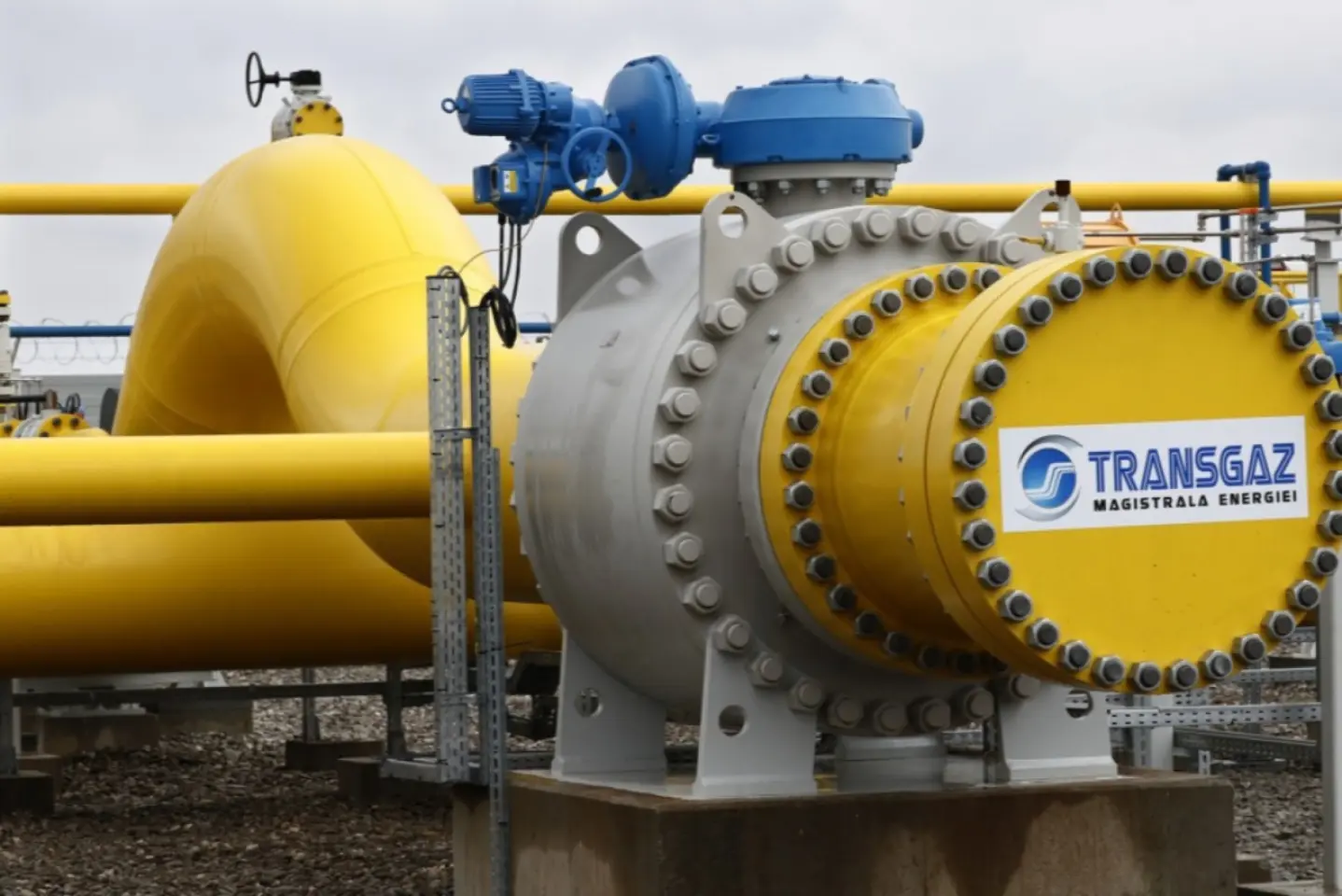
Romania will lose money by agreeing to reduce prices for the transit of natural gas to Ukraine, according to a website associated with the propaganda network of AUR.
NEWS: Romania is making a new gesture of “solidarity” towards Ukraine, this time at the expense of Romanian taxpayers. In a decision that passed under the radar, the Romanian gas transport operator Transgaz, jointly with other countries in the region, approved a 25% cut of the gas transit tariff for Ukraine on the Trans-Balkan route. [...] The real question that arises is: who benefits from this unilateral “solidarity”? The tariff reduction will not be covered by EU funding or any compensation mechanism and is not accompanied by any reciprocal obligations. What Romania offers Ukraine will receive– and Romanians will pay. In a period of economic crisis and budgetary pressures, every dime counts. And the 25% tariff cut granted to Ukraine is tantamount to lower revenues for Transgaz in concrete terms, therefore delayed investments, lack of network maintenance and ultimately indirect costs borne by all citizens.
NARRATIVE: Romania gives up important revenues from gas transportation, accepting a reduction in the tariffs charged for gas deliveries to Ukraine.
PURPOSE: To amplify anti-Ukrainian sentiment, to promote sovereignist rhetoric, to provoke protests and anti-establishment protests.
In fact, the decision is expected to increase Transgaz's revenues
WHY THE NARRATIVE IS FALSE: Prior to the signing of the agreement between DESFA SA (Greece), Bulgartransgaz EAD (Bulgaria), Transgaz SA (Romania), VestMoldTransgaz SRL (the Republic of Moldova) and Gas TSO (Ukraine), the total transportation tariff charge for transporting gas from Greece to Ukraine was over 13 Euro/MWh, while the transit tariff from Poland, Lithuania or Croatia is at most 6-7 Euro/MWh, although the Polish LNG terminal is further from Ukraine than the Greek ones. Under these circumstances, the volume of gas transported via Romania to Ukraine was extremely low, hence Transgaz’s revenues were very low.
The details of the agreement stipulate that the auctions for gas destined for Ukraine will take place only after the periodic auctions for already existing products, and will be carried out only during the storage season, i.e. from April to October, not in winter. In addition, deliveries will not be made through virtual trading points (VTPs), so that the related reservations are intended exclusively for Ukraine and do not end up getting resold on other markets.
Thus, it becomes quite obvious that, even by establishing a reduced tariff (but ensuring the profitability of the services provided), the volume of gas transported through the Transgaz pipelines to Ukraine will increase, thus leading to a considerable increase in revenues generated from the sale of the capacity unused until now. Specialists say that transportation tariffs could thus also decrease for the benefit of end consumers in all five states along the trans-Balkan pipeline route – Greece, Bulgaria, Romania, Moldova and Ukraine. In addition, according to the agreement between the five countries, Ukraine will make significant capacities for the storage of Romanian gas available to Romania, if necessary.
For the sake of consistency, we recall that Transgaz is one of the most profitable state-owned companies in Romania. In the first quarter of this year alone, Transgaz doubled its net profit, to over half a billion lei, compared to last year, mainly as a result of the 50% increase in revenues from the transport activity, both domestically and in the Republic of Moldova, where it owns the local operator Vestmoldtransgaz. The largest part of this profit, however, is derived from Transgaz’s activity in Romania, which increased its net profit by 87%.
Sovereignty propaganda reiterates an anti-Ukrainian theme
BACKGROUND: Faced with a serious deficit of natural gas, due to the attacks launched by Russia on its gas production facilities, Ukraine imports gas from several sources, but these are either too expensive (via Slovakia and Hungary) or have a very small transport capacity (via Poland and Lithuania) compared to the country's needs. Thus, the new trans-Balkan route gives Ukraine access to additional quantities of gas, coming from LNG terminals in Greece and Turkey, from Azerbaijan, as well as from Romania and Bulgaria’s future offshore production.
Last year, for the first time, the new route for transporting gas from liquefied gas terminals in Greece to the Republic of Moldova and Ukraine was tested via the trans-Balkan pipeline, which crosses the western shore of the Black Sea, passing through Bulgaria and Romania before entering Ukraine at Isaccea, and then crosses the Republic of Moldova on several segments, including the region of Transnistria.
4media.infor is part of a “network of lies”, coordinated by the extremist AUR party, whose representatives have frequently adopted anti-Ukrainian positions. Moreover, anti-Ukrainian rhetoric is specific to the entire so-called “sovereignist” spectrum – politicians, publications, influencers, etc. – which over the years has periodically promoted false narratives connected to the war in Ukraine the risks it poses for Romania and Romanian-Ukrainian relations.
Check sources:


---copie-image.webp)